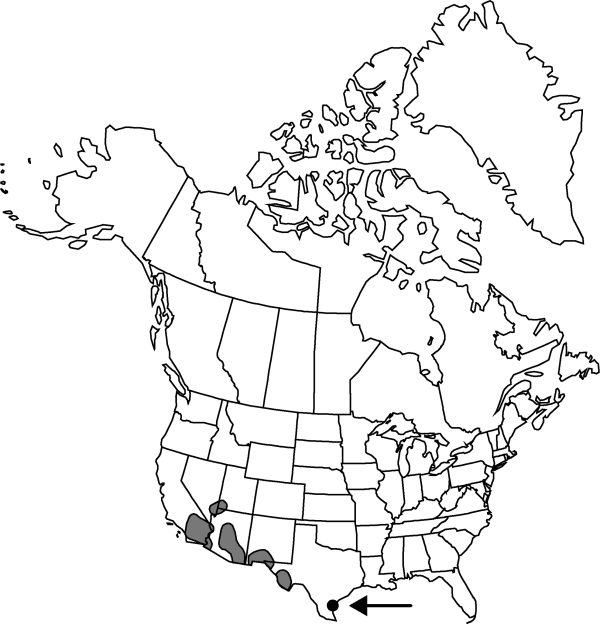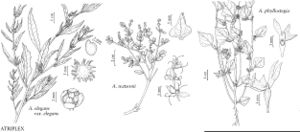Atriplex elegans var. elegans
Stems 0.5–4.5 dm. Fruiting bracteoles sessile, orbicular but not especially samaralike, compressed, (2–) 3–4 mm, united to beyond middle, margin dentate to incised, teeth 0.5–1 mm. Seeds 1–1.5 mm.
Phenology: Flowering spring–fall.
Habitat: Saline creosote bush scrub, deserts
Elevation: below 800 m
Distribution

Ariz., Calif., Nev., N.Mex., Tex., Utah, n Mexico (Chihuahua), n Mexico (Sonora)
Discussion
The faces of the fruiting bracteoles are typically smooth, but in some plants of southern Arizona especially the faces bear a single sub-basal crest, or more commonly paired crests alongside the bracteole median. The cristae rise and fall not only within populations but on individual plants, as pointed out by H. M. Hall and F. E. Clements (1923), and apparently lack taxonomic value. A sterile collection from Brewster County, Texas (B. H. Warnock 409-T), has long-attenuate leaf bases, the expanded portion of the blade spatulate-oblanceolate to oval. It is tentatively placed here, but might represent some species from south of the Mexican border.
Specimens of the “thornberi” phase, collected by Thornber, are present at UC: Santa Cruz Valley, Tucson, 16 Aug 1910, J. J. Thornber s.n., 2 sheets. At least some portion of the material by Thornber is possibly the type material for var. thornberi, but there is no indication on the sheets that they were seen by Jones.
Selected References
None.
Lower Taxa
"/2" is not declared as a valid unit of measurement for this property."dm" is not declared as a valid unit of measurement for this property.
